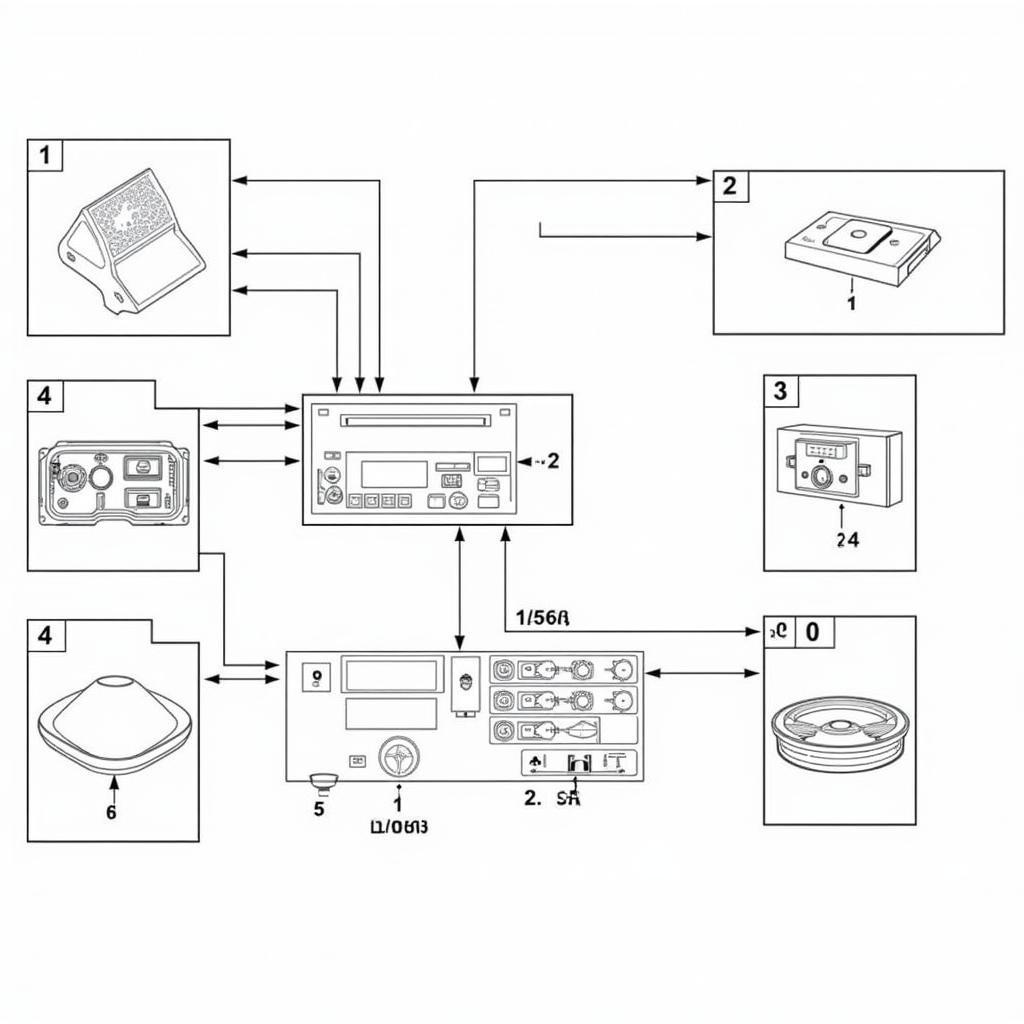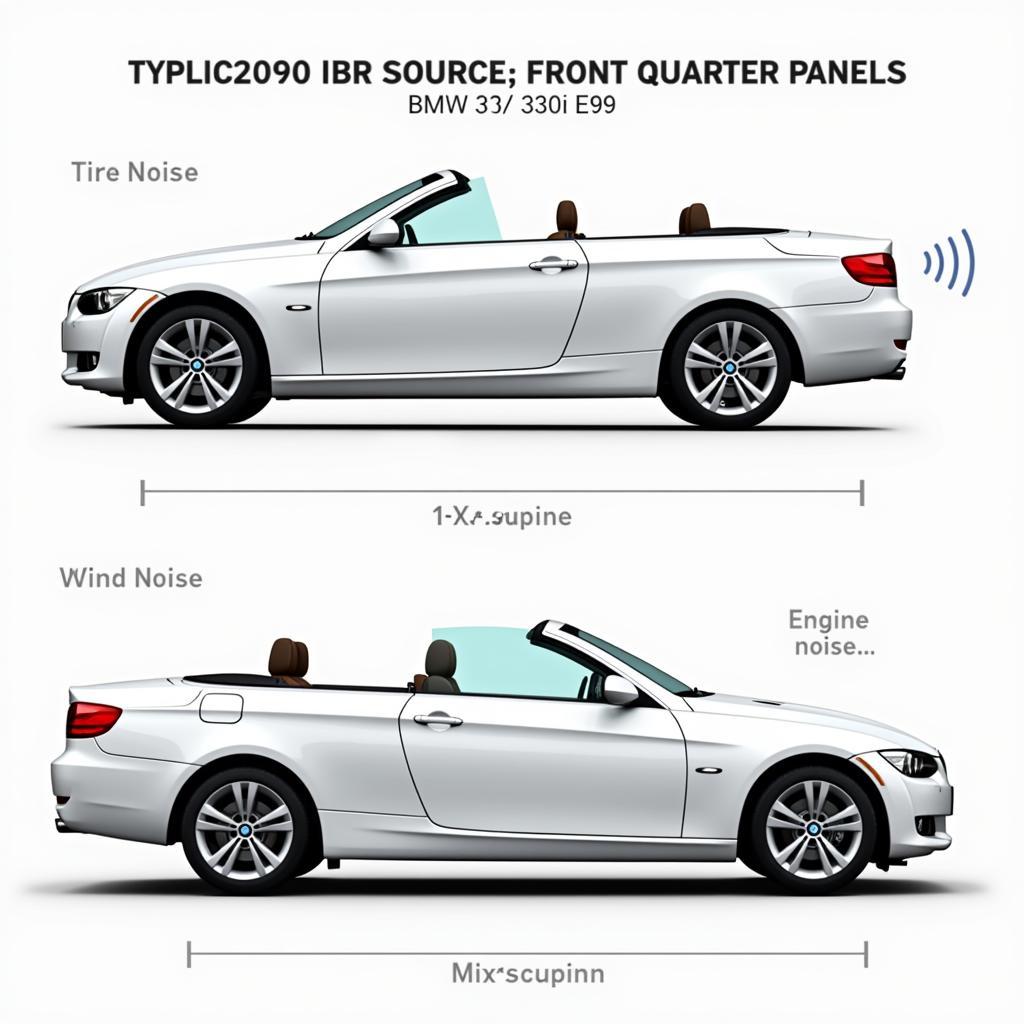The BMW E92 335i is renowned for its potent engine and sporty demeanor, and a key element of that character is its exhaust note. A throaty growl or a refined purr can significantly enhance your driving experience. But what happens when that signature sound goes awry? Or perhaps you want to unleash even more auditory excitement? This comprehensive guide will delve into the intricacies of the BMW E92 335i’s exhaust system, addressing common issues and exploring ways to achieve your desired sound.
Understanding Your BMW E92 335i Exhaust System
Before we delve into troubleshooting and modifications, it’s crucial to understand the basic components of your car’s exhaust system. The E92 335i’s exhaust typically consists of:
- Exhaust Manifold: Collects exhaust gases from the engine cylinders.
- Downpipes: Connect the exhaust manifold to the rest of the system.
- Catalytic Converters: Reduce harmful emissions.
- Resonator: Dampens sound frequencies for a more refined tone.
- Muffler: Primarily responsible for reducing exhaust noise.
- Exhaust Tips: The visible part of the system, often customizable for aesthetics.
Common BMW E92 335i Exhaust Problems
While the E92 335i’s exhaust system is generally reliable, certain issues can arise over time. These include:
- Exhaust Leaks: Often characterized by hissing noises, reduced performance, and a strong exhaust smell within the cabin.
- Rattling or Vibrating Sounds: Could indicate loose components, damaged heat shields, or worn-out exhaust hangers.
- Reduced Exhaust Flow: Clogged catalytic converters or a restrictive exhaust system can lead to decreased engine performance and altered exhaust sound.
- Electronic Issues: Malfunctions in the exhaust valve control system can affect sound and performance.
Diagnosing the Problem
Pinpointing the root cause of an exhaust issue often requires a combination of sensory inspection and diagnostic tools:
- Visual Inspection: Look for obvious signs of damage, such as cracks, rust, or loose components.
- Sound Check: Listen carefully to the exhaust note at different engine speeds and loads. Unusual noises can provide valuable clues.
- Diagnostic Software: Using a professional-grade OBD-II scanner like those offered by Cardiagtech, you can read and interpret fault codes related to the exhaust system, including sensors and electronic components.
Solutions and Modifications
1. Repairing Exhaust Leaks
Minor leaks can sometimes be temporarily sealed with exhaust repair tape or paste, but a permanent fix typically involves welding or replacing the affected component.
2. Addressing Rattles and Vibrations
Tightening loose bolts or replacing worn-out exhaust hangers are often straightforward fixes. However, addressing damaged heat shields or internal components might require professional assistance.
3. Improving Exhaust Flow
Replacing the stock exhaust system with a performance-oriented alternative can improve flow, enhance horsepower, and create a more aggressive exhaust note. Consider high-flow downpipes, cat-back exhaust systems, or even a complete exhaust overhaul.
4. Software Tuning
Reprogramming the engine control unit (ECU) using specialized software can adjust exhaust valve settings, optimize fuel-to-air ratios, and unlock a more pronounced sound without sacrificing emissions compliance.
Frequently Asked Questions
How can I make my BMW E92 335i exhaust louder?
Several options exist, ranging from subtle to aggressive:
- Exhaust Tip Replacement: A larger or more acoustically designed tip can slightly alter the sound.
- Muffler Delete: Removing the muffler will dramatically increase volume but can lead to drone and potential legal issues.
- Performance Exhaust Systems: Aftermarket systems are designed to enhance both sound and performance.
Can I install an exhaust system myself?
While basic tasks like exhaust tip replacement are achievable with basic tools, more complex installations involving welding or cutting are best left to professionals.
What is an exhaust valve, and how does it work?
Some exhaust systems feature electronically controlled valves that open or close to modify the exhaust flow and sound. These valves are often integrated into the muffler or located near the exhaust tips.
Need Expert Assistance?
Whether you’re experiencing exhaust issues with your BMW E92 335i or seeking to enhance its sound, the team at Cardiagtech is here to help. We specialize in automotive diagnostics, software programming, and remote installation services. Contact us today at +1 (641) 206-8880 or [email protected]. Our office is located at 276 Reock St, City of Orange, NJ 07050, United States. Let us help you achieve the perfect exhaust note for your BMW E92 335i!



